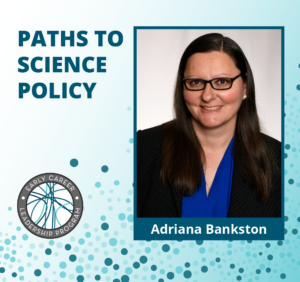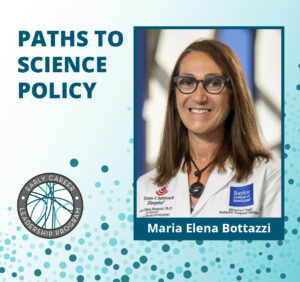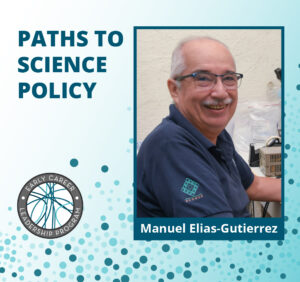The GSA Equity and Inclusion (E&I) Committee has been engaged in a number of projects designed to meet the goals outlined in our framework for making progress toward an equitable, anti-racist future. Here, we discuss the past two years of work; in early 2023, we will share plans and ideas for our next activities.
Bringing Diversity, Equity, and Inclusion (DEI) Scholarship to GSA Conferences
Since 2020, GSA-sponsored conferences have adopted a model, proposed by the E&I committee, that acknowledges the importance of DEI discussions accessible to all meeting attendees, highlighting the value that GSA sees in DEI scholarship. All GSA-sponsored conferences now include sessions that focus on promoting DEI scholarship and sharing expertise on DEI-related initiatives. These sessions are scheduled within the main program and, importantly, without competing parallel sessions. This approach increases engagement because attendees don’t have to choose between DEI and research talks; it also underscores the message that DEI is a critical component of the scientific enterprise.
Vision for Inclusive Conferences
After helping conference organizers to program DEI sessions for 2020 and 2021 meetings, the E&I committee began work on a document meant to provide guidance and a common starting point for all future organizers. Led by Andy Arsham and Sarah Bay with contributions from Anna Allen, Matthew Hahn, Olumuyiwa Igbalajobi, and Aimee Jaramillo-Lambert, our Vision for Inclusive Conferences is now part of the onboarding process for all scientist volunteers who organize a GSA-sponsored conference. The Vision takes a holistic view of conference programming and suggests ways that inclusion can (and should) be centered at all stages of the planning process. It provides guidelines for selecting an organizing committee, inviting speakers and session chairs, and other actions needed to build inclusion into all aspects of the meeting.
We’re excited to share the Vision for Inclusive Conferences with anyone (including individuals and organizations beyond GSA) who might find it a useful resource: https://genetics-gsa.org/vision-for-inclusive-conferences/
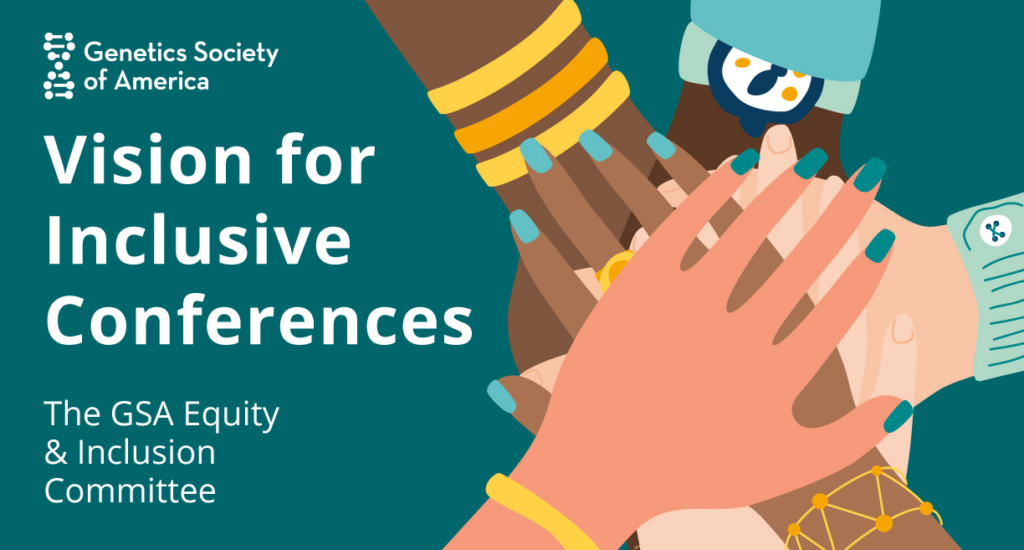
Presidential Membership Initiative
The Presidential Membership Initiative (PMI), now starting its third year, continues to grow. PMI cohorts participate in activities aimed at integrating them into GSA and connecting them with senior members to function as mentors and supporters through their careers. Presidential Members (PM) receive no-cost, one-year memberships to GSA and a waived conference abstract fee. Twenty-seven PMs have attended five GSA conferences in 2021-2022, and 32% renewed their membership past their initial year. The GSA community benefits greatly from participation of this diverse (Figure 1), engaged, and enthusiastic group in workshops, conferences, events, and research efforts. Applications for the 2023 PMI cohort are live now and close December 16, 2022. Look out for PMI meet-ups at upcoming conferences in 2023.
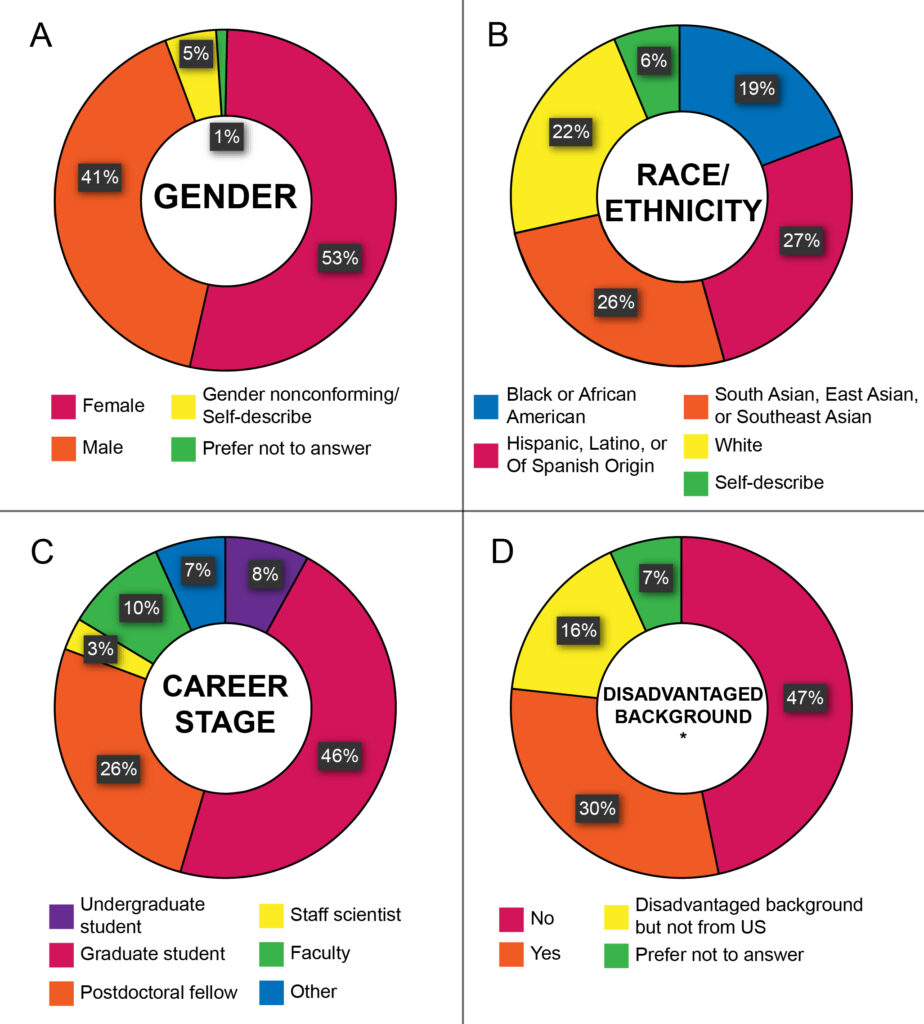
The Neighborhood Program
In early 2021, the E&I committee started work on a new project now called The Neighborhood Program. This program, which will begin rolling out in 2023, is an innovative way to develop tight-knit, collaborative groups of colleagues who are intentional in their efforts to improve the understanding of science in the public, specifically within systemically minoritized populations. These “neighborhoods,” led by early career scientists, will be united by a common interest in a science-in-society problem. The program will engage scientists from a variety of backgrounds, identities, and career stages, and the resulting neighborhoods will have the potential to address critically urgent research needs of minoritized communities and will enable powerful conversations at the intersection of culture, society and environment, and shared scientific goals. Examples of science-in-society problems include health inequities, mitigating effects of climate change or environmental toxins, understanding developmental impacts of stress or isolation, or leveraging adaptation of animal species to hazardous environments to reduce risk in affected communities.
Why The Neighborhood Program? Many enter science with a personal drive to improve the lives of the people who matter most to them. Often, this mission is redirected, with traditional training approaches encouraging assimilation, foregoing an opportunity to strengthen community connections, and dimming trainees’ cultural interests. The Neighborhood Program flips the model by building high-impact science on a foundation of cultural and community knowledge. The approach maintains the core mission of community-focused scientists while providing connection to experts with shared interests.
We piloted this program in June 2022, where four talented Presidential Members served as “Block Captains” and led the first two Neighborhoods in efforts to address health disparities in diabetes and in women’s health. We plan to expand the effort in the coming years, including via a workshop at Dros23; if you’re interested in learning more or getting involved, please email equityinclusion@genetics-gsa.org.
In July 2022, we submitted a grant for funding to support development and expansion of this program. The proposal effort was led by Sarah Bay, Alana O’Reilly, and Tracey DePellegrin, and supported by GSA’s Mary Adams (Controller), contractors Jacquelyn Roberts and Becky Carroll, the GSA E&I committee, the Society for Developmental Biology’s Anita Quintana and Ida Chow (Executive Director), and the American Cancer Society’s Tawana Thomas-Johnson (Senior Vice President and Chief Diversity Officer) and William Dahut (Chief Scientific Officer). The funding opportunity we pursued was recently launched by the National Science Foundation (NSF) Directorate of Biology and is called Leading Culture Change through Professional Societies of Biology (BIO-LEAPS). The NSF’s goal is to fund scientific societies to develop innovative programming that will “enact culture change that results in welcoming climates for diverse individuals.” The premise is that scientific societies have the power to influence and implement change via education and mentoring, conferences, awards, and publishing. We recently received reviews on our proposal and plan to revise and resubmit in 2023.
Partnering with Experts to Learn and Grow
Alongside the activities of the E&I Committee, GSA is excited to announce that it has invested in a partnership with Shari Dunn of ITBOM™ Consulting to offer innovative online training focused on equity and inclusion to staff, committee members, and leadership beginning in late November 2022. Shari Dunn is an expert in nonprofit business management, and her approach is rooted in history. ITBOM’s learning platform contains a 16-course suite of modules that cover a range of topics including unconscious bias, communication across differences, lessons from experts on disability inclusion and LGBTQ+ inclusion, and more.
By engaging with the material developed by ITBOM™, GSA staff and scientist volunteers will reach a common level of understanding on topics related to diversity, equity, and inclusion. Working from the same foundation will facilitate progress in these areas across the Society and its activities. We’re excited to build a shared knowledge base to support growth towards an equitable future.
Sustaining Action Into the Future
As part of our long-term vision for promoting actionable changes in equity and inclusion in GSA, we have formalized protocols to ensure that the membership of the Equity and Inclusion Committee reflects our goals to this end through the following mechanisms:
- Membership: Members of the committee serve two-year terms to maximize the diversity of our committee and provide frequent opportunities for prospective members to apply to serve. Applications for prospective members will open each year in October, with reviews and selections to be conducted by the end of the year. New members will be onboarded in January of the next year.
- Leadership: For better transparency and improved leadership continuity, we have formalized our leadership succession planning. In future, members will serve first as junior co-chair for one year and then become senior co-chair in the following year; in some cases, members may serve a third year as senior co-chair. Chairs will turn over in January of each year.
Previous Updates from the E&I Committee



